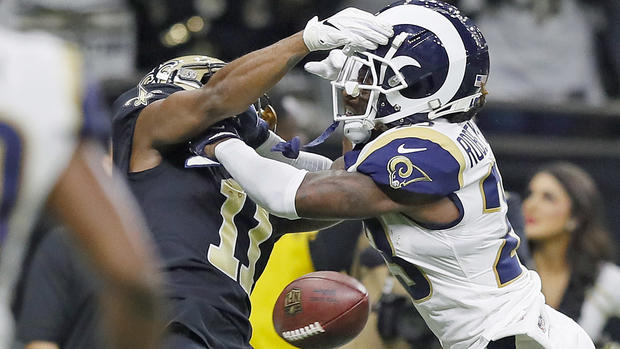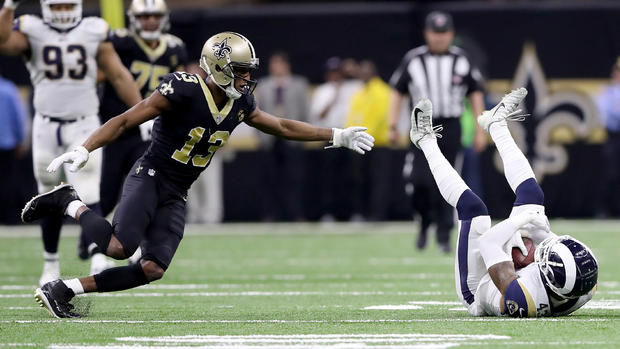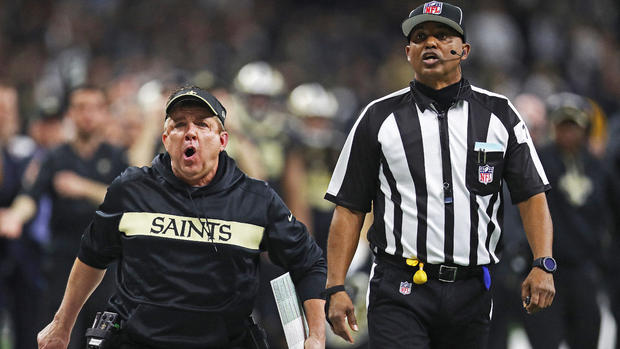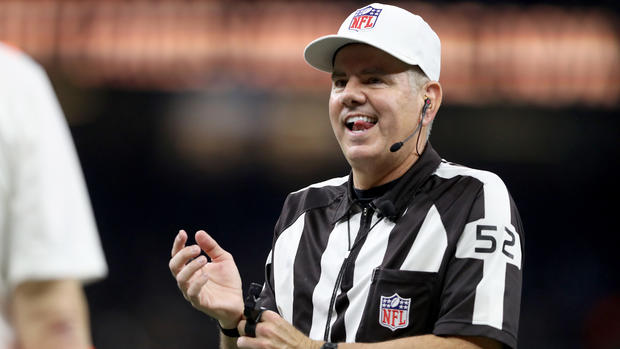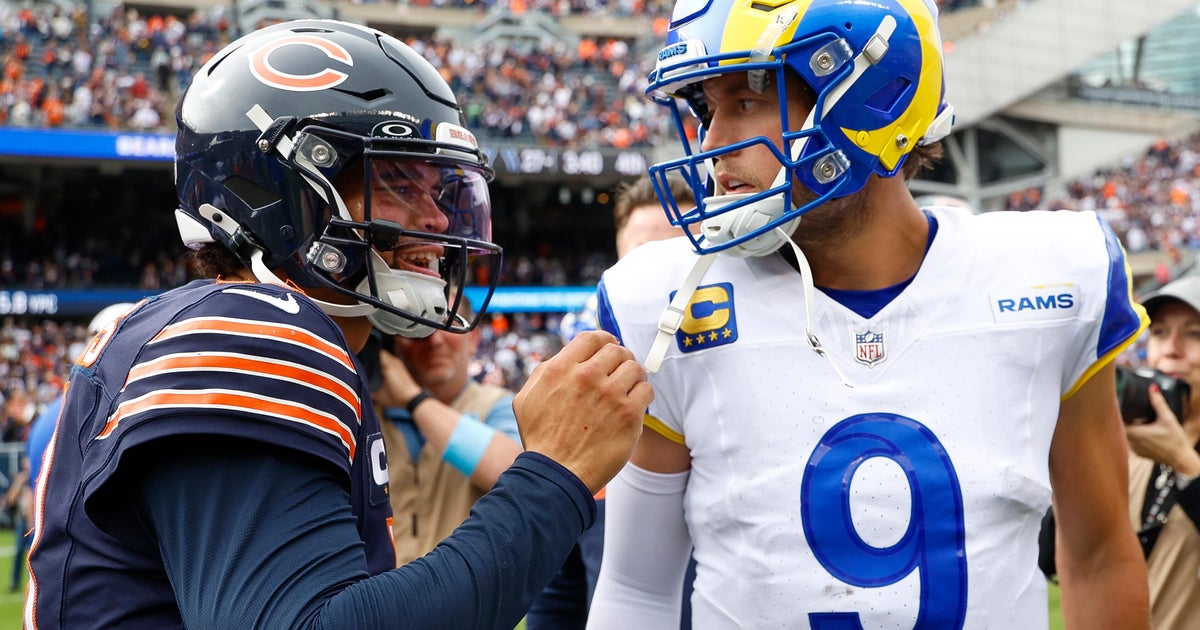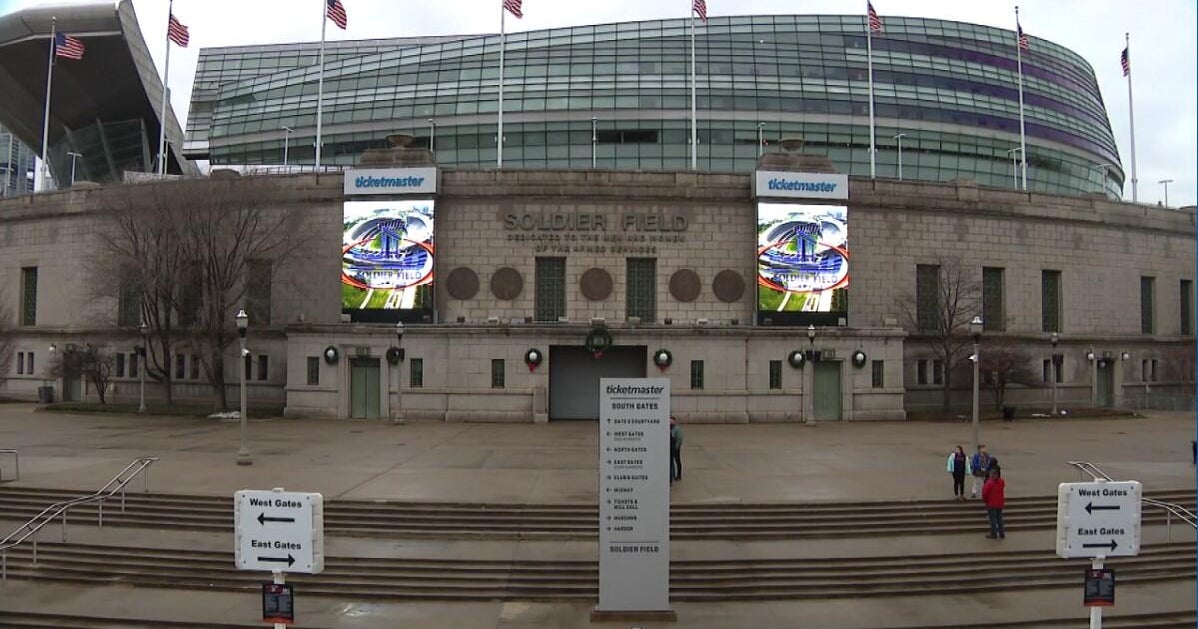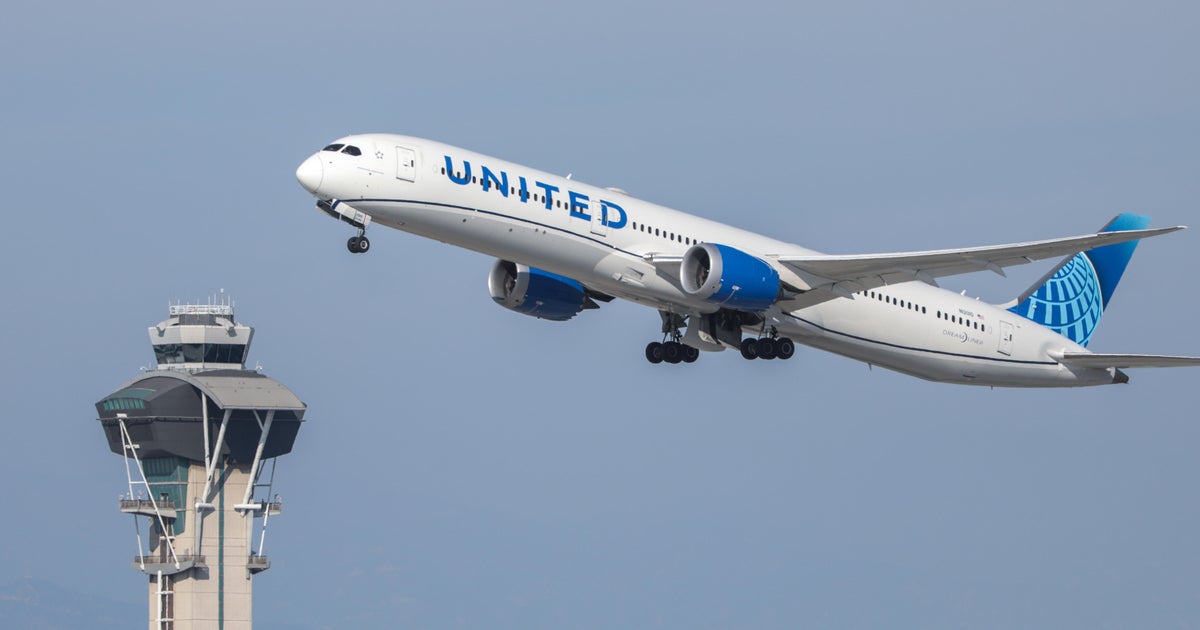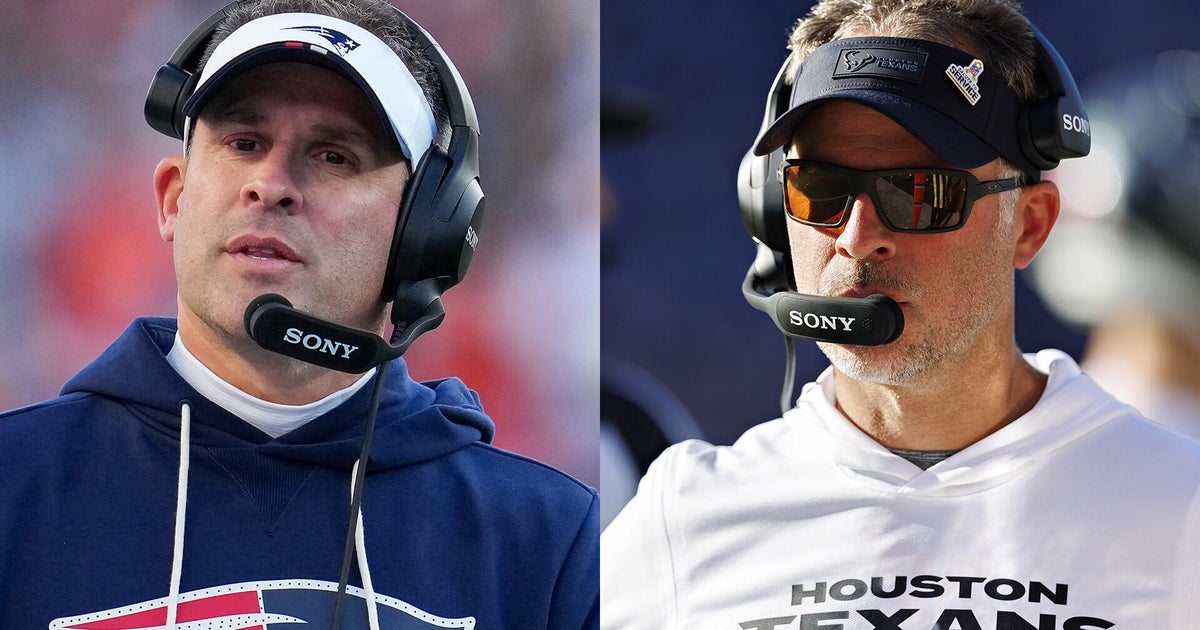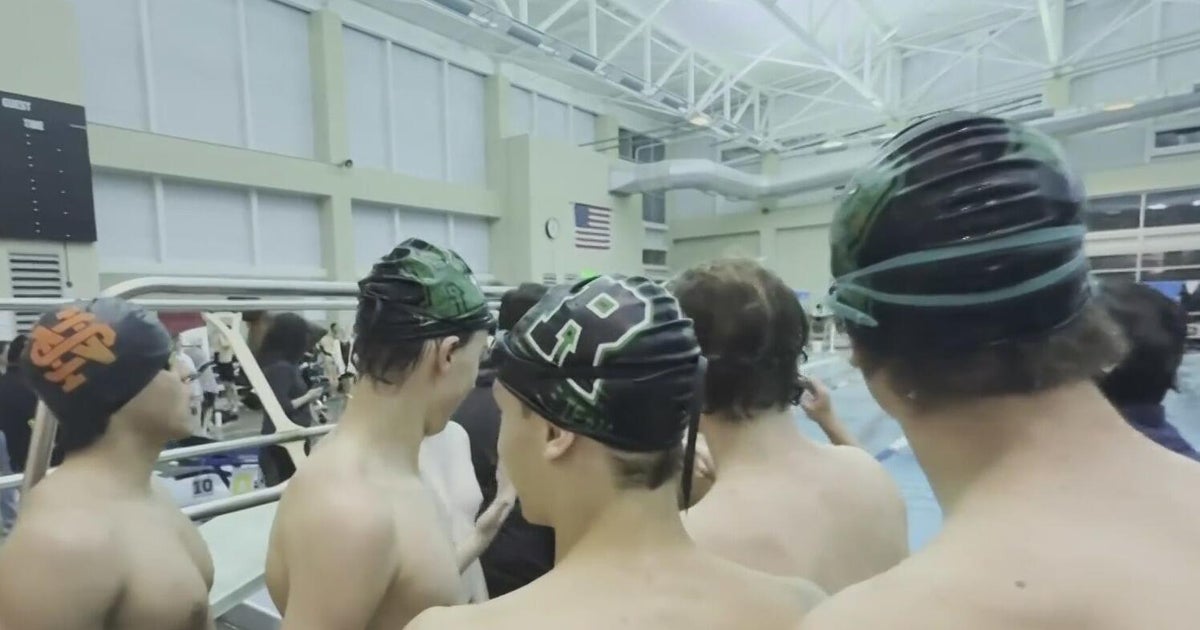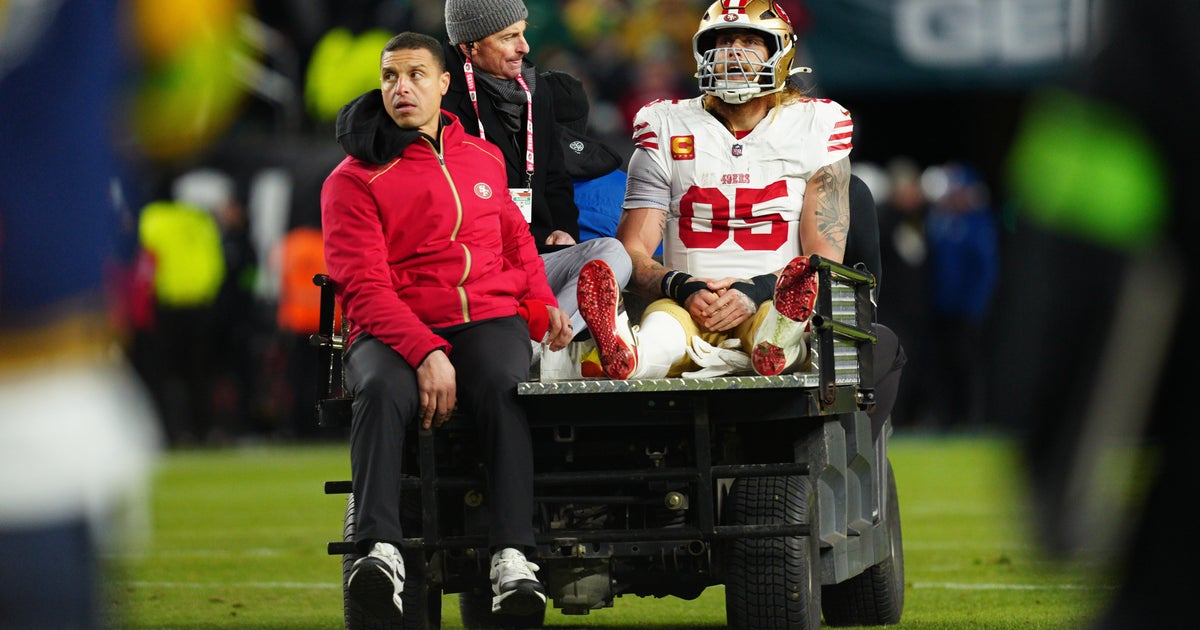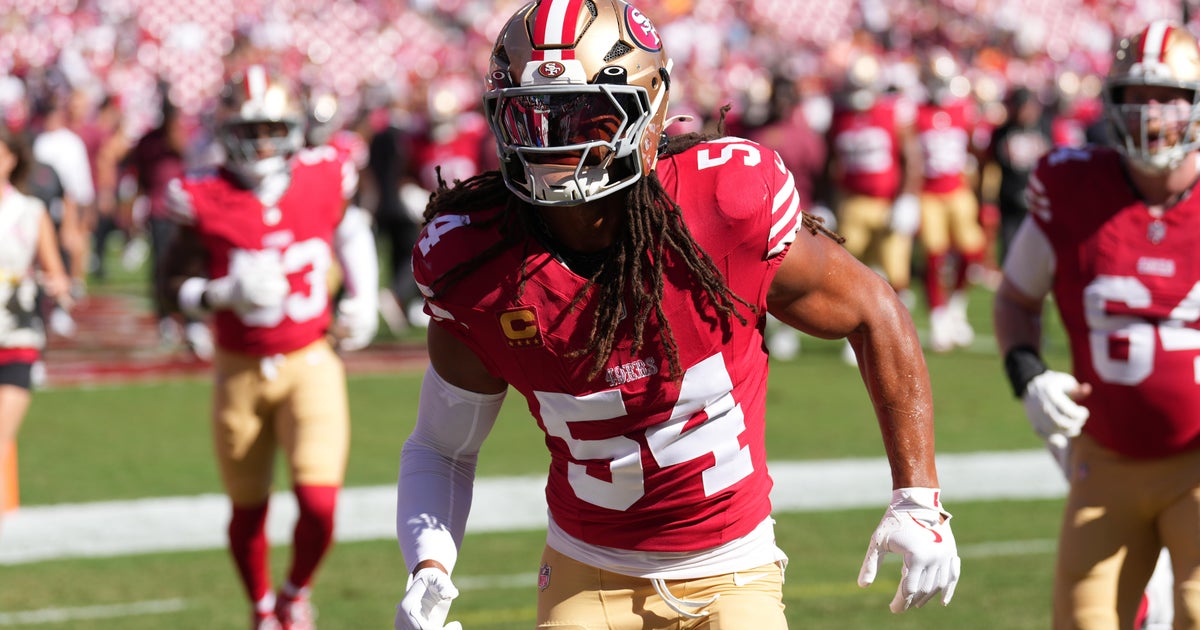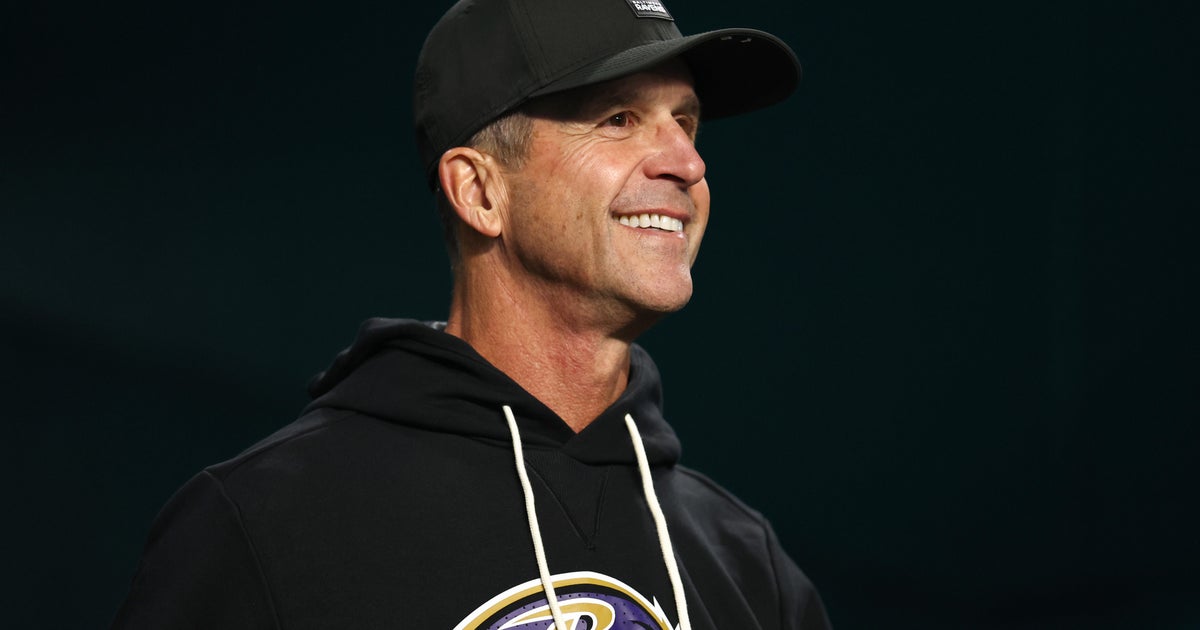Hurley: New Orleans Has The Right To Complain About Brutal Non-Call Forever
By Michael Hurley, CBS Boston
BOSTON (CBS) -- Some time has passed now since the officiating crew in Sunday's NFC Championship Game completely blew a call near the end of regulation. And while nobody disputes how atrocious the missed call was by the officials on the field, I must say, the fallout has been slightly different than I anticipated.
It's been weird. This isn't a scientific measurement by any means, but I have observed two distinct camps. People have generally responded by either saying:
A: Quit crying! Every team deals with bad calls!
or
B: The Saints still had plenty of chances to win the game!
or
C: It's the Saints' fault that they were even in that spot! Blame Sean Payton!
All of that is wrong. I'm here to say that. It's wrong.
Why Point A People Are Wrong
This was not your standard bad call. This was not a questionable penalty made in the third quarter. This was not something that could have easily been overcome with some focus and some gusto.
This was a missed call that literally took a Super Bowl trip away from the Saints.
I feel as though the situation has been lost in this.
Had the obvious penalty been called, the Saints would have had a first-and-goal at the 6-yard line.
There was 1:45 on the clock.
The Rams had just one timeout left.
If we presume the Saints would have played it smart -- Sean Payton is a smart coach -- then they would have run the ball without scoring a touchdown, so they could take a field goal lead with as little time left as possible. They'd pull a Todd Gurley on Todd Gurley's team.
So if the Saints ran the ball on first down and the Rams used their final timeout, we're at, say, 1:40. After the second down snap, the Saints could drain the clock down under a minute. And after a third down run, the Saints could have called timeout with something like 17 seconds left on the clock.
The Saints could have called timeout and then kicked the field goal, draining another few seconds off the clock.
The Saints would have been up by three, kicking to the Rams with at most 15 seconds left in the game.
By Pro Football Reference's win probability calculator, the Saints would have had a 90.76 percent chance of winning the game if they then kicked off through the end zone.
If the Saints opted for a squib kick and it didn't go so well, thus giving the football to the Rams at the, say, 42-yard line, then the Rams' chances of winning would still be just 12.97 percent.
All the Saints would have had to do would be to defend a Hail Mary -- admittedly not their strong suit! -- and then they'd be heading to Atlanta.
But instead of being properly given a 90.76 percent chance of winning the game, the call was not made, so the Saints had just a 69.5 percent chance of winning.
Putting this one in bold, here: That one missed call made it 21 percent less likely that the Saints would win the game. That one missed call turned a 91 percent chance of winning to a 70 percent chance of winning.
This was no ordinary blown call. This was as significant a blown call as could ever be imagined.
Why Point B People Are Wrong
This idea -- that the Saints still had plenty of chances to win the game -- is fundamentally true. Of course they still had a chance to win the game, especially when they wont the coin toss in overtime.
But, that's all it was. A chance. When two great football teams play each other, they each have a chance of winning. Those two teams fight and scrap and claw for any advantage in boosting their chances of winning the game. They always have a chance.
New Orleans did blow their chance when Drew Brees threw the pick in overtime -- though that might have been another instance of the officials missing either a pass interference penalty or an illegal contact penalty on the Rams, really -- but that was only after they had earned the near-certainty of winning. To ignore the complete change in status from "almost certainly winning" to "has a chance to win" and to then deride the Saints for not winning is to miss the whole point.
Why Point C People Are Wrong
This has become a loud one, but here's one person making the case that the loss falls on Sean Payton's shoulders:
A compelling argument. A not-entirely-wrong argument, sure. It's got some merit.
But play that out: First-and-10 at the Rams' 13-yard line, two minutes to play, Rams with two timeouts.
Running play, Rams timeout. Running play, Rams timeout. Running play, Saints timeout. Field goal with about 1:10 left in the game.
You've seen the NFL this year, I assume. And you've seen that 1:10 is a ton of time in today's NFL for a high-octane offense to drive the field to kick a game-tying field goal. Patrick Mahomes did it at the end of regulation later on Sunday despite having just 32 seconds and one timeout (plus an extra timeout from the officials who wanted to take 90 seconds to ensure the game clock was correct, but I digress.)
So to say it was a no-brainer to just run the ball, burn the Rams' timeouts, and kick the field goal, is to ignore the fact that the Rams (No. 2 in the NFL in scoring this season) is to overlook how advantageous it would be to either get a new set of downs to drain more clock or to score a touchdown and take a seven-point lead instead of three.
One more, and not to pick on D.A. (he's just got the most accessible take here), but he said this: "We also need to focus on that Sean Payton [Sunday] botched, fumbled away a clear and obvious coaching decision. Just run the football and kick the field goal! Don't overthink this!"
A counterpoint that nobody seems to be making: By passing the football, the Saints caught the Rams off guard. The Rams were in such a bad position to defend the pass that the defensive back had to clothesline the open receiver in order to prevent an easy reception.
Sean Payton's play calling in that situation was bold and aggressive, which some would consider risky. But it also worked. The Rams were completely out of position to make a stop on that play. The Saints would have had a first down and could have drained almost the entire clock.
The officials just didn't do their job.
Why Point D People Are Wrong
"But Michael," you might say, "there was no Point D!"
You're right. But I'm adding one.
This is my story.
Anyway.
Here's what smells the most about this whole thing. Bill Vinovich was the referee for this game. It was not his responsibility to throw a flag for pass interference, as he's in the backfield. He's looking for roughing the passer or holding or hands to the face along the line. So the fact that a flag didn't come out for pass interference is not his fault. (The responsibility would lie with the field judge or, in some cases, the back judge or the line judge.)
However ... what is his fault is that he lied after the game.
Vinovich had to face the music and speak to a pool reporter after the game. His answers were completely gutless, displaying the type of pass-the-buck mentality that comes from the top.
"It's a judgment call by the officials," Vinovich said. "I personally have not seen the play."
The reporter asked a follow-up question: "You said you didn't see the play, correct?"
Vinovich replied: "Correct."
That's all well and good, but the thing with the NFL is that there are cameras everywhere. Vinovich, as a referee who sees multiple camera angles on every replay, has to know that. So he had to have known that footage would emerge of him staring directly at the play.
Vinovich's answer was a complete and total cop-out. And it was also proven with video evidence to be a lie.
That's why the world can't simply sit back and say "Well it was a bad call but the Saints still could have won the game." That lets far too many people off the hook, people who deserve to be held accountable for what took place. That includes the officials on the field, it includes Vinovich for not telling the truth, and it includes commissioner Roger Goodell, who's been startlingly silent throughout this entire ordeal.
This is a league that lacks leadership, and this instance is just the latest example. Shifting the blame to the Saints just lets too many people off the hook.
For every organization not based in New England, Super Bowls are rare moments. The Saints, in their 52-year history, have had the honor of playing in the Super Bowl just once. This was their chance to play in the NFL's biggest game for just the second time ever. It was taken away from them. The players, coaches, and fans have every right to make as big a deal out of this one as they want, and for however they long they want.
You can email Michael Hurley or find him on Twitter @michaelFhurley.
